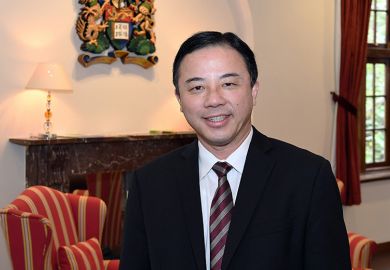We will press forward with widening participation measures and become more accessible to students from lower income families
Whatever the institutions involved might say, there is no question that some mergers are motivated by administrative or financial expediency. However, the marriage of the Institute of Education and University College London, which was formally completed on 2 December, is something very different, and much more positive.
Our decision is the culmination of a great deal of thought and planning by both organisations. It is underpinned by a powerful vision of what it takes to flourish in a higher education environment that is changing at a dizzying speed. University reputations are now made (and lost) on a global scale. Measures of quality – however flawed or misleading they may be – drive student preferences, funders’ decision-making and government strategies worldwide.
At the same time, local impact remains equally important: all universities exist in communities, but as those communities become more diverse and demanding, the pressures on institutions to service these needs intensify. It would be easy to be overawed by all of this, but the challenges also open up large and important new opportunities, on which our merger aims to capitalise.
The IoE was established at the beginning of the 20th century to train teachers for the rapidly developing schools of London. It was international in outlook from the very beginning, and over the years it has expanded its remit enormously to become one of the UK’s leading centres not simply for education but for social science more generally.
Meanwhile, UCL is one of the world’s leading “comprehensive”, multi-faculty universities, with an acknowledged concentration of academic excellence. It has developed a strong commitment to applying that broad expertise to the “grand challenges” facing the world through multidisciplinary working. Every challenge brings with it a need to understand and change human behaviour, which can realistically only be achieved through education and both qualitative and quantitative analysis of the social factors at play. These are all skills that the IoE can offer.
That expertise will also translate into accelerated academic opportunities for the merged university’s combined total of more than 35,000 students (making it by far the largest higher education institution in London), including its 19,000 postgraduates, the UK’s largest cohort.
Another key outcome is the bringing together of all five UK birth cohort studies under one roof. These have already contributed to many of the most important social and medical insights of recent decades, and have helped to shape policy in education, employment, housing and health. Housing them together for the first time will allow for more interaction and better sharing of ideas and best practice among the largest concentration of expertise in the field anywhere in the world. This will open the doors to more robust cross-generational and cross-cohort research.
Like all universities, UCL faces the challenge of developing its teaching: exploiting new technologies, building links between research and teaching and developing inspiring curricula. The merger offers an opportunity to link the IoE’s pedagogic expertise with UCL’s ambitions in research-based education, supporting a renewed focus on the quality of the student experience.
As a single institution we will also be able to combine our extensive respective networks of collaboration with secondary schools to press forward with further widening participation measures and to become more accessible to students from lower income families.
The hard work is only just beginning. But we have thought through the first two years of activity post-merger and already have a clear plan of what we wish to build together. We are buoyed by the fact that our institutions share similar values as well as postcodes: commitments to social justice, openness and a tendency to opt for the critical and radical approach. Moreover, we have similar levels of global ambition and hold in the highest esteem both academic excellence and the organisational autonomy necessary to create it.
In short, we believe this merger has the potential to be one of the most successful in the history of UK higher education.
Register to continue
Why register?
- Registration is free and only takes a moment
- Once registered, you can read 3 articles a month
- Sign up for our newsletter
Subscribe
Or subscribe for unlimited access to:
- Unlimited access to news, views, insights & reviews
- Digital editions
- Digital access to THE’s university and college rankings analysis
Already registered or a current subscriber? Login





